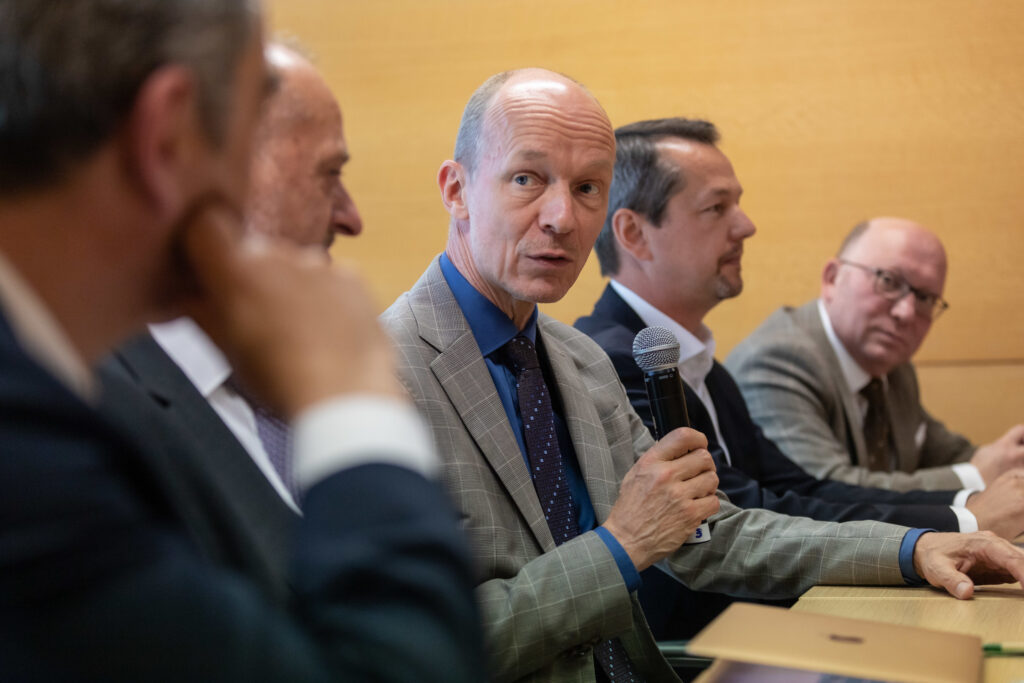
The Smart Mobility Summit of Cities and Regions, designed to support local and regional authorities in driving innovation through Intelligent Transport Systems (ITS) to achieve smart, sustainable mobility solutions for the public good.
Organised by ERTICO-ITS Europe, in partnership with the European Commission, and co-organised with Seville City, the Ministry of Transport and Sustainable Mobility, the Directorate-General for Traffic (DGT), the Government of Andalucia, and ITS Spain, the Summit is designed to provide strategic insights into how cities and regions can be at the forefront of Europe’s evolving mobility landscape.
The Smart Mobility Summit provided a valuable platform to connect with peers and share experiences. I gained insights into how other cities are tackling urban challenges, particularly traffic congestion. This summit inspired me to explore innovative solutions and implement best practices in my own city.

I participated in the Lisbon edition, and it was truly inspiring and motivating to have the opportunity to showcase a small but innovative rural city at an event that highlights some of the world’s best cases of urban innovation.

Summit’s Purpose: Leadership, Insights, Partnerships, and Resilience
Learning from best practices, addressing challenges head-on
Developing partnerships to overcome barriers to sustainable mobility
Building resilient urban ecosystems for all citizens
We invite European cities and regions to join the Summit on 19 May 2025 for a unique opportunity to address today’s urban challenges, from sustainability and inclusivity to digital transformation, and to explore how ITS can make your solutions viable and impactful.
The 15th ITS European Congress Summit united representatives from across Europe to advance green and intelligent mobility for sustainable growth.
Key discussion points included:
Pointers for the future:
Balance between better accessibility to a city, both passenger and freight, for economic reasons and devoting space to trees/green infrastructure, traffic calming, and controlled emission zones for better liveability.
Cooperation between the private and public sectors regarding collecting and using data in mobility services
Putting in place a long-term skills and training plan for the mobility sector.
Understanding the impact of Artificial Intelligence on mobility services.
Participating Cities & Regions (and representatives):
The Smart Mobility Summit of Cities and Regions, a key highlight of the previous 15th ITS European Congress, setting the stage for this year’s Summit, brought together over 30 representatives to discuss green and intelligent mobility for sustainable growth. The focus was on sharing best practices and implementing Sustainable Urban Mobility Plans (SUMPs) and Indicators (SUMIs) to monitor progress and improve quality of life.
The summit stressed the need for collaboration, knowledge sharing, and research on sustainable mobility while addressing challenges like data privacy, AI impacts, and integrating energy demand in planning. Keynote speaker Mr. Torsten Klimke from the European Commission stressed the need for regulatory action to support urban and rural mobility systems.
Amsterdam, Berlin, Birmingham, Brno, Cologne, Delft, Dubai, Dublin, EUROCITIES, FundãoGraz, Hamburg, Helmond, Helsinki, Ile de France, Istanbul, Izmir, Kassel, Kyiv, Liberec, Liepaja, Lisbon, London, Madrid, Manchester, Munich, Noord-Brabant, POLIS, Porto, Rome, Saxony, Seville, Solihull, Tallinn, Tampere, Vienna, Vilnius.
The Summit featured four critical discussions points:
The 15th ITS European Congress Summit united representatives from across Europe to advance green and intelligent mobility for sustainable growth.
Key discussion points included:
Pointers for the future:
Balance between better accessibility to a city, both passenger and freight, for economic reasons and devoting space to trees/green infrastructure, traffic calming, and controlled emission zones for better liveability.
Cooperation between the private and public sectors regarding collecting and using data in mobility services
Putting in place a long-term skills and training plan for the mobility sector.
Understanding the impact of Artificial Intelligence on mobility services.